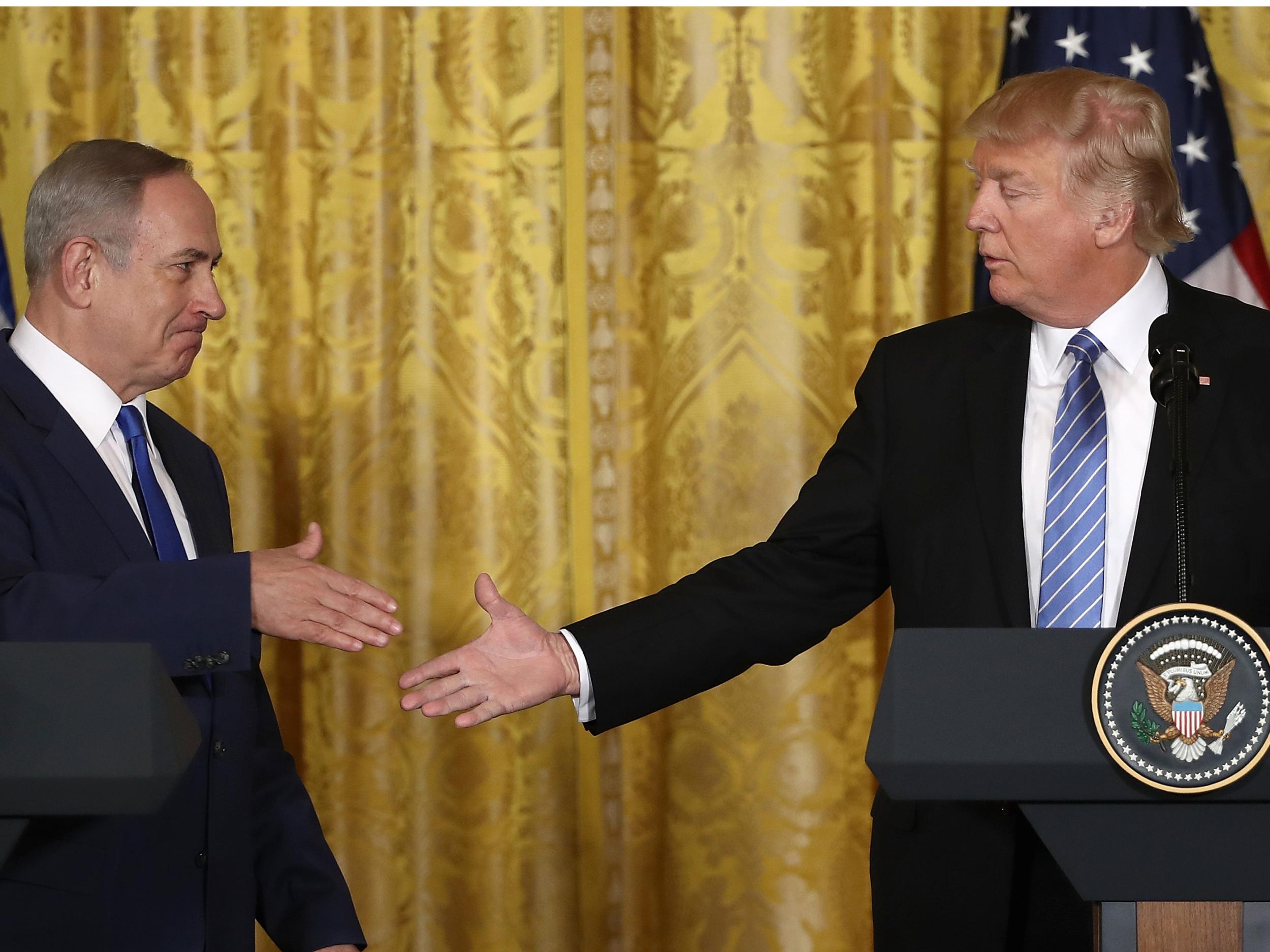Donald Trump abandons plan to move Israel embassy to Jerusalem
Despite the setback the move remains his 'ultimate goal', says Sean Spicer

Your support helps us to tell the story
From reproductive rights to climate change to Big Tech, The Independent is on the ground when the story is developing. Whether it's investigating the financials of Elon Musk's pro-Trump PAC or producing our latest documentary, 'The A Word', which shines a light on the American women fighting for reproductive rights, we know how important it is to parse out the facts from the messaging.
At such a critical moment in US history, we need reporters on the ground. Your donation allows us to keep sending journalists to speak to both sides of the story.
The Independent is trusted by Americans across the entire political spectrum. And unlike many other quality news outlets, we choose not to lock Americans out of our reporting and analysis with paywalls. We believe quality journalism should be available to everyone, paid for by those who can afford it.
Your support makes all the difference.Donald Trump has decided not to announce a plan to move the US embassy in Israel to Jerusalem during his visit to the country, though that reportedly remains his ultimate goal.
During the election campaign, Mr Trump vowed to switch the embassy’s location, something that pleased conservatives and supporters of Israel. The vast majority of countries, including the US, locate their embassies in Tel Aviv, out of respect of the disputed status of Jerusalem.
Many had expected Mr Trump would make the announcement when he visits Israel, one of five countries he is taking in during his upcoming first foreign trip as president.
But the White House said that a decision had been taken to postpone the announcement, out of concern the move could drive Palestinians away from peace talks.
Bloomberg News said a White House official said the administration considers its discussions with both the Israeli government and the Palestinian Authority to be promising, with the Palestinians in particular agreeing to talk without preconditions. Mr Trump recently hosted Palestinian Authority President Mahmoud Abbas at the White House and talked of his optimism of securing a peace deal, a task to which he has entrusted his son-in-law, Jared Kuchner.
“The Palestinians and Israelis must work together to reach an agreement that allows both peoples to live, worship and thrive and prosper in peace,” Mr Trump said.
“And I will do whatever is necessary to facilitate the agreement, to mediate, to arbitrate anything they’d like to do, but I would be a mediator or an arbitrator or a facilitator.”
Mr Trump said in a speech to the American Israeli Political Action Committee conference in March 2016, that he would move the embassy to Jerusalem, calling it “the eternal capital of the Jewish people”.
The city is claimed as a capital by both Jews and Palestinians, however, and relocating the US embassy - a move that would in effect declaring Jerusalem to be Israeli territory - would raise tensions. Earlier this week, White House spokesman Sean Spicer refused to declare it such.
“We don’t think it would be wise to do it at this time,” the official said. “We’ve been very clear what our position is and what we would like to see done, but we’re not looking to provoke anyone when everyone’s playing really nice.”
As president, Mr Trump has said brokering a deal between Israel and the Palestinians would be the “the ultimate deal.” He sent an envoy, Jason Greenblatt, to the region in March to open talks. Mr Trump has also met with Israeli Prime Minister Benjamin Netanyahu at the White House.
Join our commenting forum
Join thought-provoking conversations, follow other Independent readers and see their replies
Comments